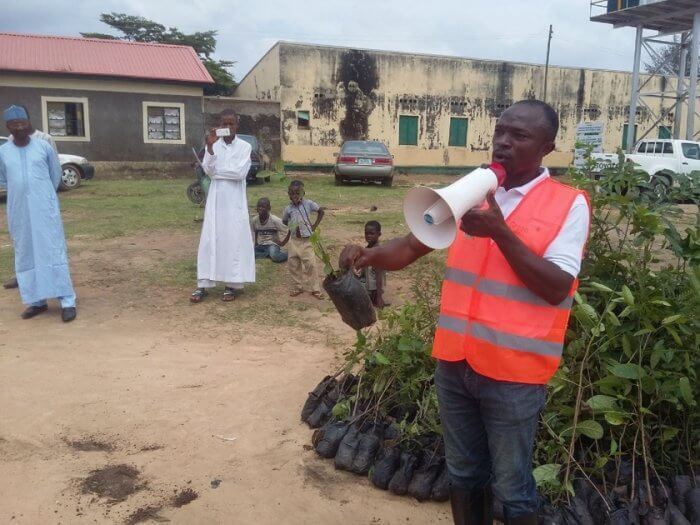
EBRD extends $ 21.3 m loan to Red Sea wind energy farm in Egypt
The European Bank for Reconstruction and Development (EBRD) is supporting the development and sustainability of ...

Cameroon’s entrepreneur Tabi Joda has managed to plant one million trees within the framework of his project One Billion Trees for Africa which was launched in 2010.
Joda was shocked by the scale of deforestation. He said “The land was bare, the water table low, wildlife had diminished, and invasive species had taken over.”
With the support of his parents, Joda took over a large piece of family land in 2010 and launched his agroforestry business “One Billion Trees for Africa,” which goes in line with the Sustainable Development Goals (SDGs).
Joda began to plant the first of tens of thousands of trees, enlisting the youth of his community to support an endeavor that he said can demonstrate how to turn rural areas into profit centers that are also beneficial to the ecosystem as a whole.
“A forest should deliver both environmental services and economic opportunities,” said Joda. “Agroforesty restores the ecosystem and provides livelihoods.”
Joda estimates that he has planted around one million trees on the land he took over, intermixed with kola nuts, cashews and avocados. He employs 20 people and envisions recruiting even more youth and women from the community to produce an entire range of value-added plant-based products emerging from the forest, from skin care products derived from avocado, kennel and castor oils, as well as supplements such as moringa powder.
“If I can create employment for 20 people, it must be possible to create many more jobs and provide a viable living that will keep our youth here and discourage them from risking their lives elsewhere,” he said. “I want to stop people from being climate refugees.”
Joda has taken his initiative on the road, spending time with farmers and communities across the continent, from Burkina Faso all the way to Uganda. Among the accolades he has received for his efforts are his inclusion in 2019 as an ambassador of the African Forest Landscape Restoration Initiative.
“I want to encourage people all over the continent to replicate what I have done in my forest,” he said. “If every person plants one tree, we could get there.”
Agroforestry is a central component of the 2021-2030 UN Decade of Ecosystem Restoration: a global effort to accelerate efforts to reverse centuries of damage to forests, wetlands and other ecosystems and chart a sustainable course for the planet.
Taking the next step to provide alternative livelihoods for communities living in and near forests will make these kinds of initiatives sustainable as they have complementary poverty reduction and environmental sustainability goals, said Judith Walcott, a program officer with the United Nations Environment Program (UNEP)’s World Conservation Monitoring Center.
“Ending poverty must go hand-in-hand with strategies that improve health and education and encourage sustainable economic growth,” she said.
The European Bank for Reconstruction and Development (EBRD) is supporting the development and sustainability of ...
The Food and Agriculture Organization of the United Nations (FAO), in partnership with the Azerbaijan ...
About 18 new green shipping corridor initiatives emerged worldwide in the last year alone – ...


اترك تعليقا